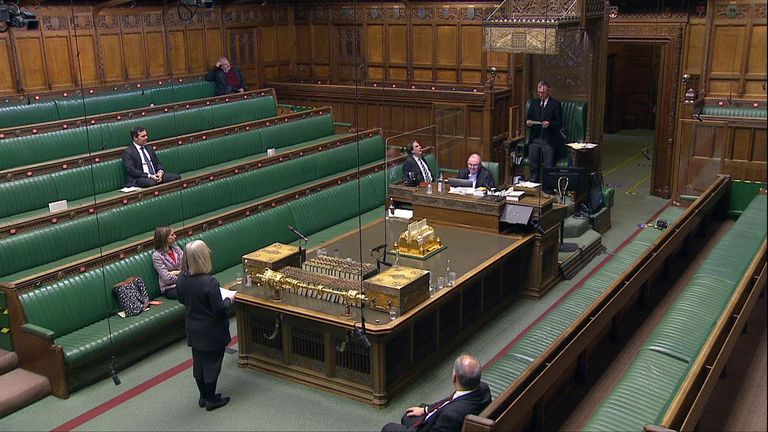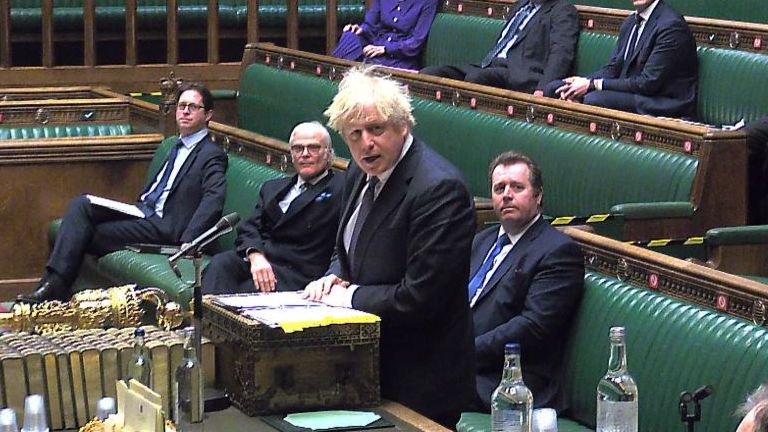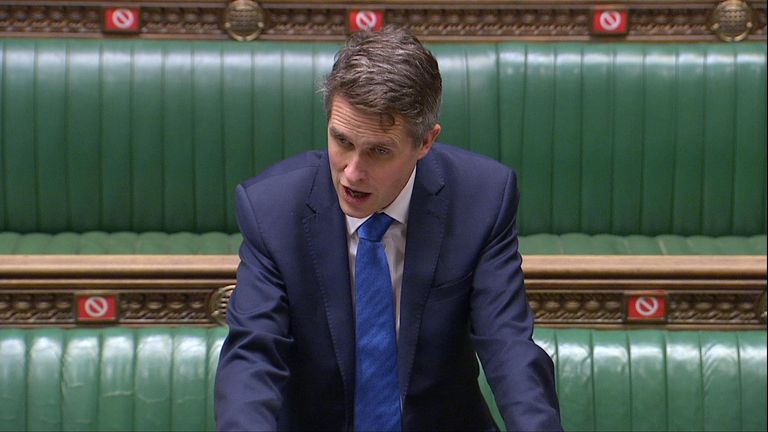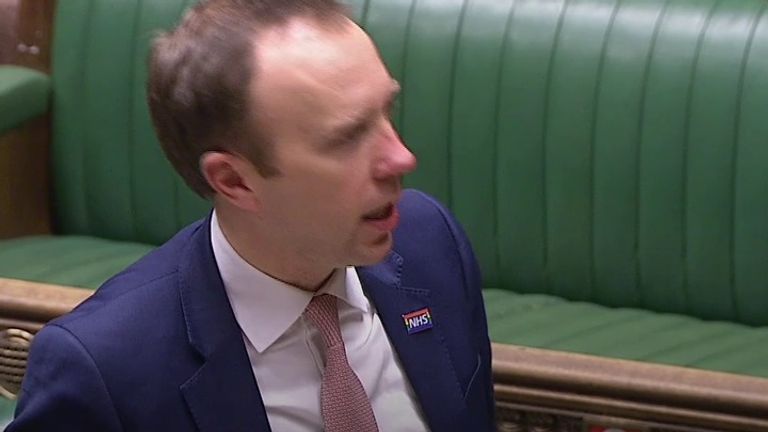It’s often said that the first rule of politics is to be able to count.
(It was Lyndon Johnson who first said it. And while it seems to have been forgotten by some in the US right now, it applies in the UK too.)
The numbers will show that lockdown three in England was backed in the Commons by 524 votes to 16; a majority of 508, which is 60 votes bigger than Boris Johnson’s winning margin on his Brexit deal a week ago.
But the most important outcome of the second recall of the House of Commons over the Christmas recess was the government’s buying off of potential rebel Tory MPs with a pledge to begin easing COVID restrictions when possible.
The rules approved by MPs allow the government to keep the lockdown in place until the end of March.
But rebels were told the restrictions will be eased gradually, “through the tiers” before then if the vaccination programme permits.
The voting numbers at the end of the day confirmed that the Tory lockdown rebellion was tiny, with just 14 Conservative MPs voting against the government, though there were some abstentions too.
The potential rebels were obviously satisfied that while the lockdown regulations will remain in place, the restrictions may not.
Will that pledge be honoured?
The cynical view at Westminster is that promises to would-be rebels made by a minister in the winding up speech of a debate are often not worth the paper they’re not written on. (Apart from Hansard later, of course.)
But the likes of Sir Graham Brady and Sir Charles Walker – who led the Tory opposition to the latest lockdown – are no pushovers and will not allow the prime minister and Health Secretary Matt Hancock to wriggle out of these commitments now.
And after the grandees applied the early pressure on the government, it was one of the new “Red Wall” Tory MPs – Mark Fletcher, of Dennis Skinner’s old seat of Bolsover – who pressed health minister Helen Whately, winding up the debate, to spell out the commitment.
In reply, she said there was a statutory requirement to review the lockdown rules every two weeks and that, legally, the government has to ease restrictions when they are no longer necessary.
“We absolutely don’t want to continue these restrictions longer than necessary,” she said, telling MPs she had three young children at home being schooled and looked after their father.
Subscribe to the Daily podcast on Apple Podcasts, Google Podcasts, Spotify, Spreaker
Earlier, the often passionate Sir Charles made easily the best speech in the debate, announcing he would vote against the government, because he could not support criminalising parents walking in the park with their children.
“It’s not in my DNA,” he said.
He then launched a blistering and passionate attack on commentators living comfortable lives who sneer at “Covidiots”.
He also angrily denounced constituents who claim to be “having a good lockdown”.
Sir Charles said some people having a bad lockdown were going to suffer badly and “break” and it was his job to speak for them.
The second best speech of day, in the early part of the lockdown debate, came from Robert Halfon, the Tory MP who chairs the Education Select Committee.
“I really worry about school closures,” he told MPs, before listing the risks of children not being in class, including eating disorders, online harm and county line gangs.
Earlier in the day, confirmation was given by Education Secretary Gavin Williamson – Mr U-turn – that not only are schools in England remaining closed for some time, but this summer’s exams are cancelled too.
He has attempted to mitigate the disaster of school closures by throwing money at the problem, which was probably his only option given the gravity of the massive disruption now being inflicted on pupils.
So there will be cash not just for laptops but also for food parcels or free school meals. Clearly Mr Williamson wants to avoid yet another battle with the England footballer and campaigner Marcus Rashford MBE.
But it is the uncertainty over exams that remains the biggest problem. There will be concern that children who were due to sit GCSEs and A levels are heading for three Ds: de-motivated, dis-incentivised and demoralised.
After months of U-turns, Mr Williamson will probably not survive the prime minister’s cabinet reshuffle, whenever that comes, at least in his current job.
His supporters will claim the pandemic has placed him in an extremely difficult if not impossible position.
Many MPs will also argue that Mr Johnson should have over-ruled him and sided with Matt Hancock and Michael Gove and acted earlier, rather than dither and let the indecision drift towards inevitable U-turns.
And many Tories are also furious with Mr Williamson for being too soft on what they regard as the “Trots” running the teaching unions.








